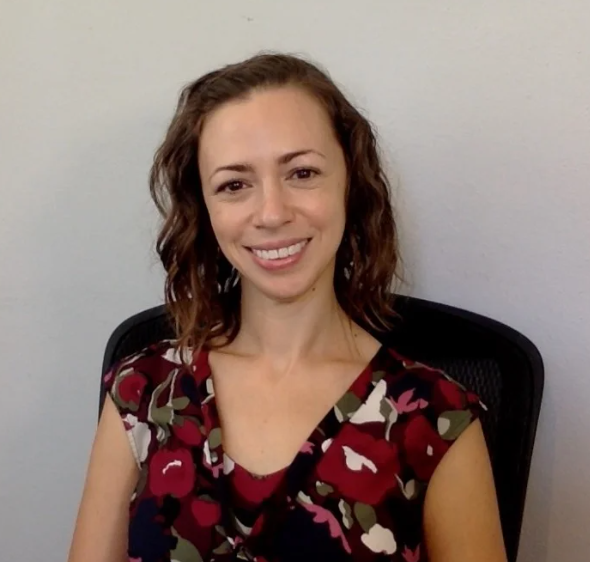Licensed Clinical Psychologist & Identity Affirming Therapist
For recovering people-pleasers
Dr. Shannon York
(she/her)
Hey, I’m Shannon, and I’m so glad you’re here.
If you’ve spent a lifetime making yourself small to keep the peace, prioritizing others at the expense of yourself, or questioning your own reality because of the messages you received growing up—you’re not alone. I know this struggle deeply, both professionally and personally. And I also know the relief that comes from finally learning to trust yourself again.
I’m passionate about this work because I’ve lived it. I know the weight of self-doubt and the exhaustion of always trying to earn love. I also know what it’s like to finally feel safe, seen, and enough—just as you are. Healing isn’t about becoming someone new; it’s about coming home to yourself. I’d love to walk that path with you.
Therapeutic approach
*Please note that my approach is DBT-informed which is different from standard DBT. Reach out to see if DBT-informed therapy or standard DBT is the best fit for you.
Dialectical Behavior Therapy
Dialectics: "both/and” thinking that makes space for holding two thoughts that feel like opposites- like feeling fulfilled by caring for others and also exhausted by monitoring the needs of loved ones.
Skills: a whole BOOK of practical tools for relief, focusing on awareness, self-regulation, communication, and preventing distress from rearing its ugly head in the first place.
Validation (my favorite part): communicating to yourself or others that what you are thinking, feeling, or doing is understandable given the context. Affirming that our experience and needs makes sense, are valid, and are justified.
Shared Ideals
Insight: “ah-ha!” moments that make your experience finally make sense. Putting the pieces together to increase understanding as a pathway to healing.
Therapeutic relationship: therapy as a potential alternate model to relationships that differs from past unhealthy dynamics. As your therapist, earning your trust through repeated safe behavior and taking accountability when a repair is in order.
Patterns: Identifying both helpful and unhelpful patterns, why they developed, and exploring new alternatives.
Interpersonal Psychodynamic Therapy
Origins: identifying roots of emotional pain, often found in family dynamics and cultural influences (read: colonialism, capitalism, and all the other ugly -isms they have spawned).
Relationships: unpacking beliefs we hold about ourselves and others, including who taught us those beliefs and who benefits from us holding those beliefs. Since our emotional pain originated in relationships, it is also healed in healthy relationships.
Meaning: inviting in metaphors, imagery, dreams, and even memes to make meaning out of your experience.
An unexpected path
Truth be told, I became a psychologist because I failed an undergraduate biology course. I wanted to be an orthodontist because mine took a lot of vacations (#priorities); that seemed like it would be a nice change from my family’s financial stress. After a lifetime as a “gifted” kid who was told that things should come “easy” to me, failing a course in my first year of college was absolutely devastating. It kickstarted a depressive episode that eventually sparked a search for a therapist. Whew, I did not expect what would happen from our work together! She was the first person to suggest that maybe my suffering wasn’t all my fault or entirely my responsibility to fix alone (cue my young brain exploding). Maybe I could help others feel that same relief? I enrolled in Psych 101 and the rest is history.
Philosophy of care
At the heart of my work is the belief that psychological pain comes from unmet childhood needs. When those early needs aren’t met, we find ways to cope—ways that may have helped us survive but now leave us stuck in patterns of self-doubt, burnout, and unfulfilling relationships. Therapy is a space to "reparent" yourself, to learn how to meet the needs that went unmet and to create healing experiences that transform how you see yourself, others, and the world.
For many of my clients—especially people pleasers and those with CPTSD—early wounds often looked like deep invalidation. Maybe the adults in your life told you that what you were feeling wasn’t real, that you were too sensitive, too much, or not enough. Over time, you learned to betray yourself just to maintain connection. Therapy helps undo that painful dynamic. It’s about repairing your relationship with yourself so that your relationships with others can be authentic, fulfilling, and sustainable.

Reach Out - Let’s Start the Conversation
Have questions or want to explore your goals? Send me a message, and together we’ll create a path toward growth, understanding, and living as your true self.
In Alignment Wellness
Licensed clinical psychologist serving residents of Florida & Washington
All sessions are held virtually via secure telehealth video






